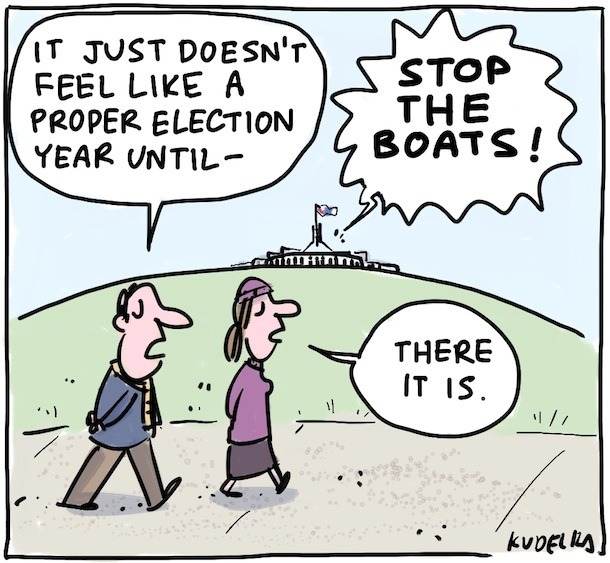By Graeme Innes and Allison Orr
The history of Australia over the last 200 years is one of immigration, the story of millions of people leaving their homes to build a new life in another part of the world. Through waves of immigration over 200 years, Australia has evolved into a successful, modern multicultural democracy.
Australia also has a strong record of welcoming refugees. The Second World War and the holocaust gave rise to an international awareness of the need to provide asylum for those fleeing war, persecution and torture, and Australia accepted around 10,000 people fleeing Nazi Germany between the mid-1930s and the early 1940s. After the Second World War, tens of thousands of people flooded out of Europe. In 1947 the USAT General Stuart Heintzelman arrived in Fremantle carrying 843 displaced persons from Estonia, Latvia and Lithuania. It was the first of almost 150 voyages by 40 ships bringing refugees from the war in Europe to be resettled in Australia .
In response to the massive movements of people after this devastating war, the General Assembly of the United Nations convened a conference to draft a convention relating to refugees. Australia was one of 26 countries represented at this conference, and in 1954 was one of the first countries to sign the Convention Relating to the Status of Refugees (hereafter referred to as the Refugee Convention) .
Since then, Australia has resettled around 750,000 refugees. Today, Australia is one of nine nations who, along with the United States, Canada, Sweden, Norway, Finland, New Zealand, Denmark and the Netherlands, resettle the bulk of UNHCR refugees annually, and our ongoing commitment to this global resettlement program is something we should be proud of.
Given this record, what can we make of the central place that fear and even hysteria of asylum seekers on boats now occupies in our political life? How has a country that is built on immigration, is a signatory to most international human rights instruments, and shows a continued commitment to the UNHCR resettlement program become so preoccupied by the spectre of boats of desperate people off our coast?
Since the Tampa incident in 2001, the issue of maritime asylum seekers has been a constant theme in our political life, and at the front-and-centre at every Australian Federal election. Human rights advocate Julian Burnside has described the 2013 Federal election as the only time in our history when both major political parties have courted political favour by promising to be cruel to a particular group of people . Given that around 200,000 people come to Australia every year as migrants, why have the few thousand who arrive by boat become the focus of such political venom?
In this report, we try to comprehend this phenomenon, by looking back over the recent history of this issue in Australian political life, critiquing current policy and looking for ways we can move this issue forward. This report is not an examination of immigration policy, nor will it cover the minutiae of immigration and human rights law. There is a very large and rigorous body of literature on these subjects. There is also a lot of work being done on better and more sustainable policy responses to this issue, and we do not intend to duplicate this work. Rather, we intend to get closer to an understanding of the role this issue continues to play in our body politic.
We believe the story of boat arrivals in Australia can be understood by looking at how politicians have primarily used this issue to portray their leadership credentials, and have consequently developed policies with an eye on short-term political gain.
The issue has been so emphatically and persuasively framed in these terms that arguments about the moral case and our obligations under the Refugee Convention have failed to connect with the Australian people. We argue that it’s time for a new conversation on this issue, one that can connect more broadly. While politicians are likely to see it as being in their self-interest to keep this as a wedge issue, we argue that it is in the self-interest of the Australian people to move beyond this ad hoc short-term thinking. All the measures in our current suite of policies on maritime asylum seekers are either ineffective, hugely costly, or problematic long term. It is in our interests to change this bad policy response.
In the absence of political leadership, we call on members of the Australian community, from all sectors, to make a stand on this issue and demand a policy response that is sustainable and effective in the long-term.
Thank you to Jon Kudelka for his permission to use his cartoon

